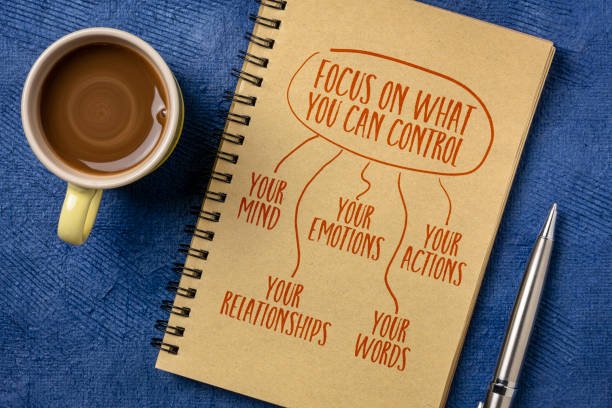In the tapestry of our lives, relationships are the vibrant threads that bring color, meaning, and support. Whether it’s with our partners, family, friends, or colleagues, the quality of these connections profoundly impacts our happiness and well-being. Yet, navigating the complexities of human interaction can often feel like walking a tightrope, fraught with misunderstandings, conflicts, and unspoken tensions.
If you’ve ever wished for a magic formula to foster deeper connections, communicate more effectively, and navigate disagreements with grace, you’re not alone. While there’s no instant fix, the ancient practice of mindfulness offers a powerful and evidence-based pathway to transforming your relationships from the inside out.
Mindfulness, the art of paying non-judgmental attention to the present moment, isn’t just about inner peace; it’s a potent tool for enhancing our awareness of ourselves and others in our interactions. By cultivating presence, empathy, and non-reactivity, we can break free from ingrained patterns that lead to conflict and cultivate deeper understanding, compassion, and stronger bonds. Let’s explore seven mindful habits that can revolutionize your relationships and help you connect on a more profound level, right here in Khulna and beyond.

Table of Contents
The Mindful Foundation for Thriving Relationships
The challenges we face in relationships often stem from a lack of presence and awareness. We might be physically present with someone but mentally preoccupied with our own thoughts, worries, or assumptions. This mental clutter hinders our ability to truly listen, understand, and respond thoughtfully. Mindfulness provides the antidote, fostering a state of being fully present in our interactions.
When we approach our relationships mindfully, we become more attuned to:
- Our Own Internal State: Recognizing our emotions, triggers, and reactions in the moment.
- The Other Person’s Experience: Paying attention not just to their words but also their tone, body language, and underlying emotions.
- The Dynamics of the Interaction: Observing the patterns and energy flow within the relationship.
This heightened awareness creates space for more intentional and skillful responses, paving the way for healthier and more fulfilling connections.
7 Mindful Habits to Cultivate Stronger Bonds
Here are seven practical mindful habits you can weave into your daily interactions to nurture and strengthen your relationships:
1. Mindful Listening: The Gift of Presence
Truly listening to someone is a rare and precious gift. Mindful listening involves giving your complete attention to the speaker without interrupting, judging, or formulating your response while they’re still talking. It means putting aside your phone, making eye contact (if culturally appropriate), and focusing on understanding their perspective, both the spoken and unspoken. When you listen mindfully, you make the other person feel seen, heard, and valued, fostering trust and deeper connection. Try to notice not just the words but also the emotions and needs underlying them.
2. Pausing Before Reacting: Creating Space for Wisdom
In heated moments, our emotions can hijack our responses, leading to regrettable words or actions. Mindfulness teaches us the power of the pause. Before reacting to a perceived slight or disagreement, take a conscious breath. Notice the emotions arising within you without immediately acting on them. This brief pause creates space for a more thoughtful and skillful response, preventing impulsive reactions that can damage relationships. Even a few seconds of mindful pausing can shift the trajectory of a conflict.
3. Cultivating Empathy: Seeing Through Their Eyes
Empathy, the ability to understand and share the feelings of another, is the cornerstone of strong relationships. Mindfulness enhances empathy by helping us step outside our own perspectives and consider the other person’s experience. When someone shares their struggles, try to mindfully consider their situation, their background, and the emotions they might be feeling. This doesn’t necessarily mean agreeing with them, but it does mean acknowledging their reality and validating their feelings, fostering a sense of being understood and cared for.
4. Non-Judgmental Observation: Letting Go of Assumptions
Our minds are often filled with judgments and assumptions about others, which can create barriers in our relationships. Mindfulness encourages non-judgmental observation, both of ourselves and others. When interacting, try to notice your own internal judgments as they arise and gently let them go. Approach the other person with an open mind, seeing them as they are in the present moment, rather than through the lens of past experiences or preconceived notions. This openness allows for more authentic and understanding interactions.
5. Mindful Communication: Speaking with Intention
Mindful communication involves being aware of your intention before you speak and choosing your words carefully. It means expressing yourself honestly and kindly, while also being mindful of the impact your words might have on the other person. Avoid blaming, criticizing, or defensiveness. Instead, focus on expressing your own feelings and needs clearly and respectfully, using “I” statements. Mindful communication fosters clarity, reduces misunderstandings, and creates a safer space for honest dialogue.
6. Practicing Gratitude: Appreciating the Positive
It’s easy to take our loved ones for granted and focus on what’s not working in our relationships. Mindfulness encourages us to intentionally appreciate the positive aspects of our connections. Regularly taking time to notice and acknowledge the kindness, support, and love we receive from others strengthens our bonds and fosters a sense of gratitude. Expressing your appreciation, whether through words or actions, reinforces positive feelings and nurtures the relationship.
7. Mindful Conflict Resolution: Navigating Disagreements with Awareness
Conflict is inevitable in any relationship, but it’s how we navigate these disagreements that truly matters. Mindful conflict resolution involves approaching disagreements with presence, empathy, and a focus on understanding rather than winning. Instead of getting caught up in blame or defensiveness, try to mindfully listen to the other person’s perspective, acknowledge their feelings, and express your own needs calmly and respectfully. The goal is to find a mutually agreeable solution while preserving the relationship, rather than escalating the conflict.
Integrating Mindfulness into Your Relationships: Practical Steps
Making these mindful habits a part of your relationships takes conscious effort and consistent practice. Here are some practical steps to get started, even here in Khulna where community and connection are so important:
- Start Small: Choose one or two mindful habits to focus on initially. Perhaps you decide to practice mindful listening during your next conversation with a family member.
- Be Patient: Changing ingrained patterns takes time and effort. Don’t get discouraged if you slip up. Simply acknowledge it and recommit to practicing mindfulness in your next interaction.
- Practice Regularly: The more you consciously apply these mindful habits, the more they will become second nature.
- Communicate Your Intentions (Optional): You might choose to share with your loved ones that you’re trying to be more mindful in your interactions. This can create a shared understanding and encourage mutual support.
- Seek Support: Consider exploring mindfulness resources, such as books, apps, or local meditation groups in Khulna, to deepen your understanding and practice. You might find valuable support and guidance from others on a similar journey.
The Ripple Effect: Mindfulness Benefits All Your Connections
The beauty of using mindfulness to improve relationships is that the positive effects ripple outwards. As you become more present, empathetic, and skillful in your interactions, you not only strengthen your close bonds but also cultivate more positive and harmonious connections with everyone you encounter, from your neighbors in Khulna to colleagues you interact with online.
Consider the impact of a more mindful approach in your workplace, leading to better teamwork and understanding. Think about how mindful listening can deepen your friendships and create a stronger sense of belonging within your community. The principles of mindfulness are universal and can enhance the quality of all your human interactions.

Conclusion: Cultivating Connection, One Mindful Moment at a Time
In a world that often feels increasingly disconnected, mindfulness offers a powerful pathway back to genuine human connection. By cultivating presence, empathy, and non-reactivity in our interactions, we can break down the barriers that separate us and build relationships based on understanding, compassion, and mutual respect. The journey of mindful relating is an ongoing one, and for those looking to explore the science and practice of these skills, resources from institutions like the Greater Good Science Center at UC Berkeley (https://greatergood.berkeley.edu/) provide invaluable, research-backed guidance. The rewards of this journey – deeper intimacy, stronger bonds, and a greater sense of belonging – are immeasurable.
Take Your First Mindful Step Towards Deeper Connections
Which of these mindful habits resonates most with you right now? We invite you to choose one and consciously practice it in your next interaction today. Notice the subtle shifts in the dynamic and how it feels to connect with more presence and awareness.
Share in the comments below which mindful habit you’re focusing on and what you observe! Your insights can inspire others in our Khulna community and beyond to cultivate more meaningful relationships through mindfulness.